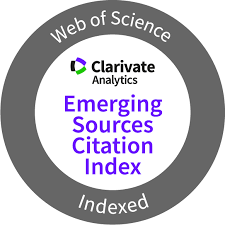Application of quantitative methods for the programming of artistic shows
an application in the uruguayan carnival
DOI:
https://doi.org/10.36561/ING.20.3Keywords:
Organization of Artistic Events, Decision Making, Mathematical Programming, Timetabling, OptimizationAbstract
In this work an application of quantitative methods for the programming of artistic shows is presented. In particular, the work carried out for the problem of making the fixture for the contest “Carnaval de las Promesas 2019/2020”. This event is a competition belonging to the Uruguayan carnival that has five different artistic categories, created especially for groups of children and adolescents. A mixed integer mathematical programming model was developed for the problem. The objective was to balance the attendance of the public and comply with the restrictions of the contest regulations, as well as other requirements indicated by the organizers.
Downloads
References
F. Ortega, M. Pozo, J. Puerto. Modelling and planning public cultural schedules for efficient use of resources. Computers & Operations Research 58, 9–23, 2015.
Uno por uno, los 10 líos que dejó este carnaval. Diario El Observador. https://www.elobservador.com.uy/nota/uno-por-uno-los-10-lios-que-dejo-este-carnaval-201936155957. Último acceso: 14/02/2021
Real Academia Española. Diccionario de la lengua española (Edición de tricentenario), 2008.
G. Kendall, S. Knust, C. Ribeiro, S. Urrutia. Scheduling in sports: An annotated bibliography. Computers & Operations Research 37, 1-19, 2010.
Boletín Cultura. Sección: Reglamentos del Carnaval 2020. http://www.boletincultura.com/2019/11/reglamentos-del-carnaval-2020.html. Último acceso: 15/12/2019
Equilibrio y taquilla: estudiantes de ingeniería diseñaron el fixture del carnaval de las promesas. Diario El Observador. https://www.elobservador.com.uy/nota/equilibrio-y-taquilla-estudiantes-de-ingenieria-disenaron-el-fixture-del-carnaval-de-las-promesas-2019112810611. Último acceso: 14/02/2021
Published
How to Cite
Issue
Section
License
Copyright (c) 2021 Alfonsina Cardozo, Carolina Guido, Juan Carlos Machin

This work is licensed under a Creative Commons Attribution 4.0 International License.






















